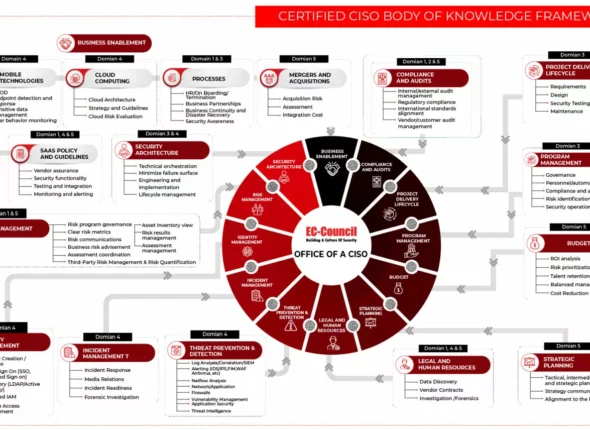Currently Empty: $0.00
About Course
WHAT IS THE C|ND
EC-Council’s Certified Network Defender (C|ND) is an essential vendor-neutral network security certification for every IT and systems administrator who needs to operate with a secure mindset.
Students will learn the critical skills required to defend their networks and operating environments across local networks, endpoints, cloud infrastructure, applications, OT, and Mobile. They will also acquire knowledge of effective proper log analysis, network traffic monitoring, basic investigation and response, as well as business continuity and disaster recovery.
Additionally, they will dive into threats, analyzing the attack surface, and studying threat prediction and threat intelligence as it relates to their administration and defense responsibilities.
Often referred to as blue-teaming, C|NDs will be able to apply defense and countermeasure strategies in their organizations, playing a critical role not only in attack prevention but also in detection, response, and remediation as they configure networks and systems to operate securely.
The C|ND program will cover the concepts and fortify skills through hands-on practice across over 110 labs delivered on live target machines. The C|ND program designed by industry experts prepares network defenders with strategic, technological, and operational network security capabilities, enabling them to design, develop, and maintain secure networks.
WITH A CONTINUAL/ADAPTIVE SECURITY STRATEGY
According to Gartner, ‘traditional “prevent and detect” approaches are inadequate.’ Opportunistic by nature, malicious actors look for the easiest ways to attack most users and siphon off maximum gains. Developing a continuous Adaptive Security Cycle helps organizations stay ahead of cybercriminals by creating and improving security systems. And that’s what you learn in the C|ND program.
PROTECT
Defense-in-depth security strategy
- Protect Endpoints
- Protect network
- Protect data



